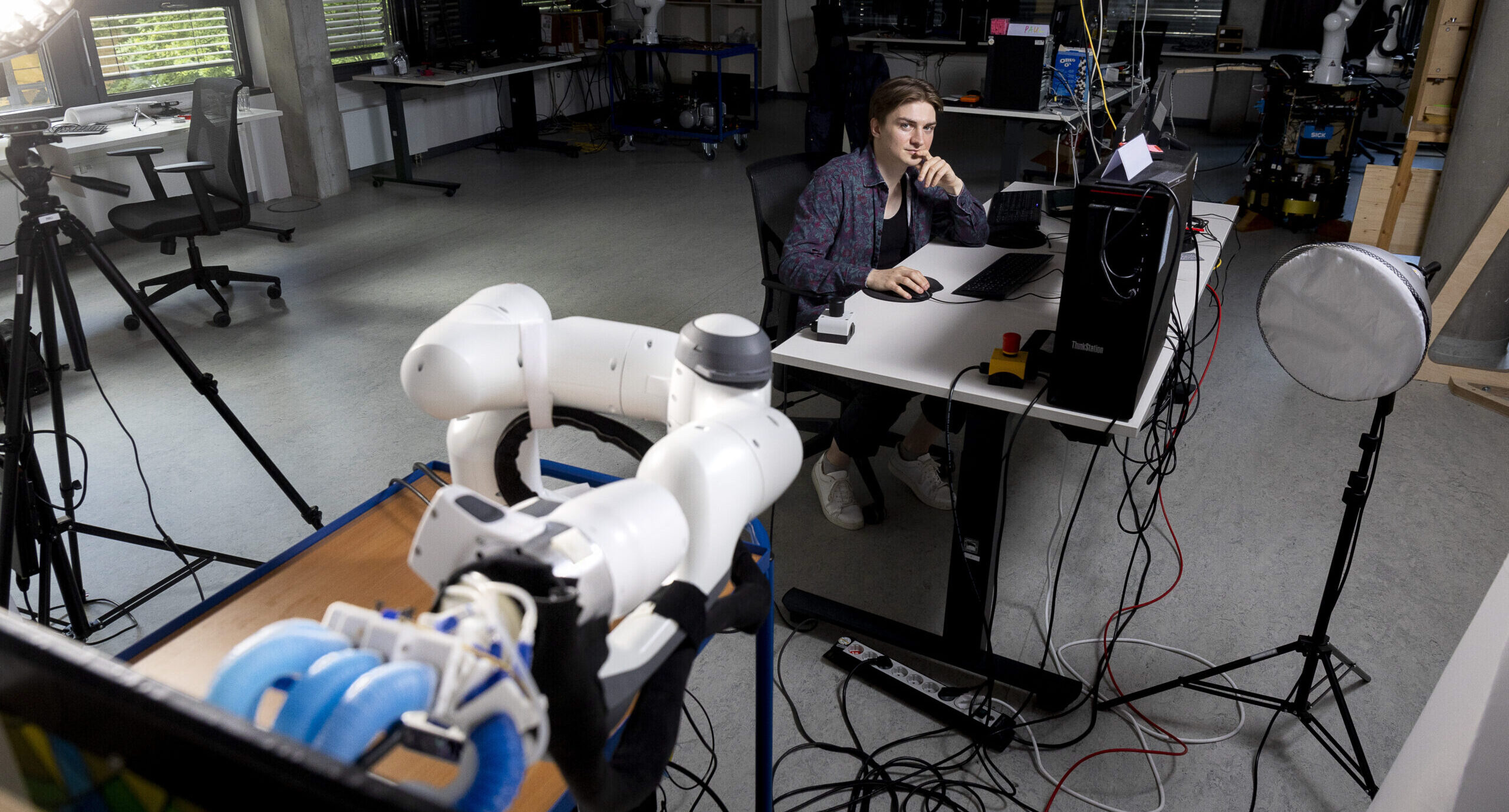SCIoI’s Vito Mengers featured in IEEE Robotics & Automation Magazine
When the IEEE Robotics & Automation Magazine publishes an interview, it’s worth paying attention. Known for bridging the gap between deep academic research and hands-on engineering, the magazine contributes to bringing together the cutting edge of robotics to real-world implementation. The publication provides a platform where theoretical ideas turn into systems that actually move, sense, and interact, and where researchers share what it really takes to make robots not just smarter, but more capable in the messy complexity of reality.
This makes it especially rewarding to see Vito Mengers, researcher at Science of Intelligence (SCIoI), featured in its latest interview series, “Mastering Research.” Together with his advisor and SCIoI spokesperson Oliver Brock, he received the Best Paper Award in Planning and Control at this year’s IEEE International Conference on Robotics and Automation (ICRA 2025) — one of the most prestigious conferences in robotics. Their paper, “No Plan but Everything under Control,” challenges one of the field’s oldest assumptions: that robots need carefully crafted plans to perform complex, multi-step tasks.
Instead, Vito proposes something radically different: robots that don’t plan, but still stay completely in control. Using a method called dynamically composed gradient descent, their system adapts on the fly, adjusting its actions as the environment changes. Whether rearranging blocks or opening drawers, it shows that intelligent, goal-directed behavior can emerge from feedback and interaction alone, and no rigid planning is required. It’s as elegant as it sounds: everything under control, but no plan.
In the interview, Vito talks about what drives this kind of research. He describes his work as problem-driven rather than method-driven: starting not from what tools are available, but from what problems remain unresolved. When faced with new questions, he prefers to test the simplest real-world version of an idea rather than exploring it endlessly in simulation.
He also reflects on how to read and navigate scientific literature in a field that evolves quickly. Instead of getting lost in endless searches, he emphasizes the value of conversation, asking colleagues who already know the area, sharing annotated papers within his group, and taking handwritten notes to process ideas more deeply. For him, understanding grows through interaction, not isolation — a perspective that resonates strongly with the principles behind Science of Intelligence.
The Mastering Research series aims to open a window into how scientists actually think and work: how they choose problems, organize their ideas, and keep curiosity alive amid deadlines and data. Vito’s contribution to this series is a thoughtful reminder that good research is not only about technical breakthroughs, but about building a mindset that can sustain discovery.
Read the full interview in IEEE Robotics & Automation Magazine:
“Mastering Research: Choose Smart, Read Smarter.”





